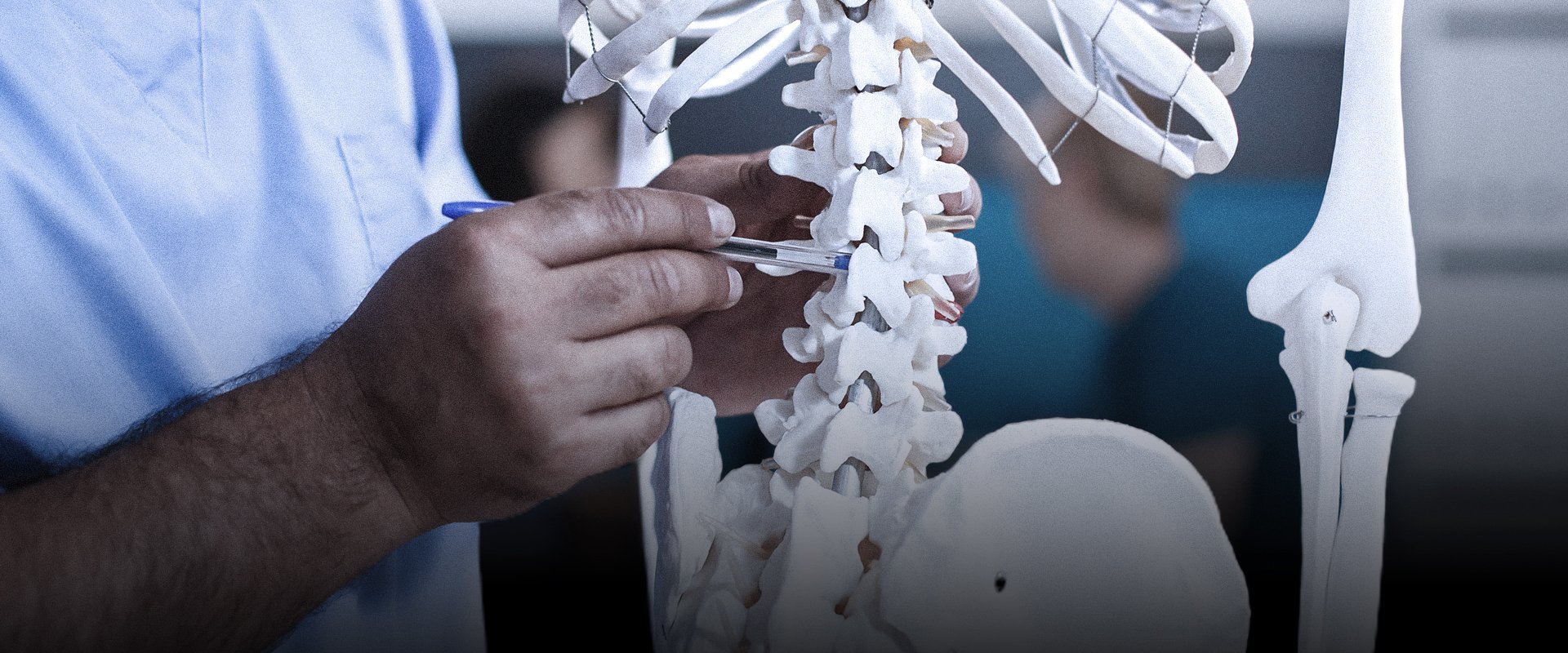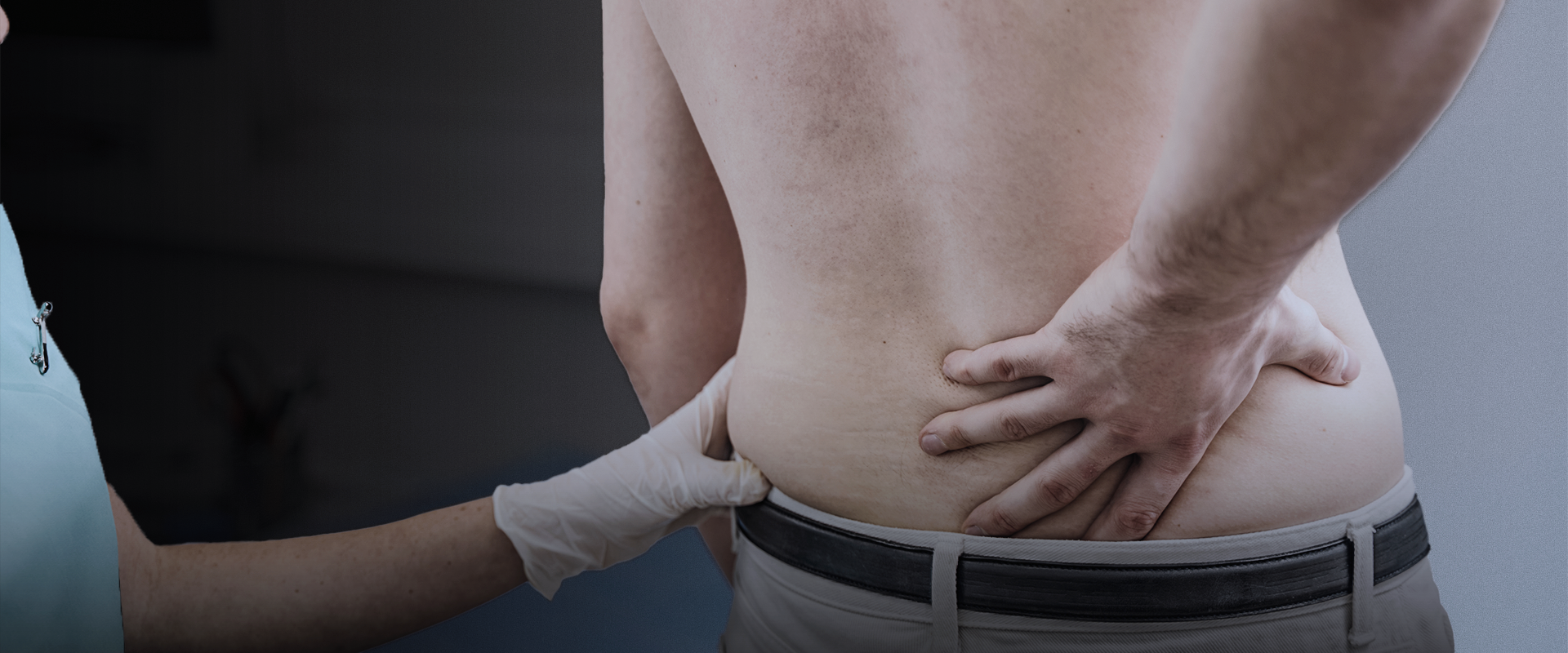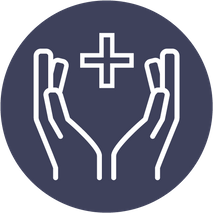
Physical Therapy for Spondylolisthesis
AT EVOLVE
Physical Therapy for Spondylolisthesis
HOW CAN PHYSICAL THERAPY ADDRESS A SPONDYLOLISTHESIS?
A spondylolisthesis is a condition of the spine wherein one vertebrae slips forward on top of another. This condition can be caused by degeneration, trauma, overuse or congenital defects. Spondylolisthesis can cause back pain and discomfort and conservative management through physical therapy is often recommended as a first line of treatment.
WHAT DOES PHYSICAL THERAPY FOR A SPONDYLOLISTHESIS LOOK LIKE?
Physical therapy for spondylolisthesis aims to improve symptoms of pain or stiffness, reduce radiating symptoms, address underlying causes for the injury and reduce progression of the condition. In cases where surgery is necessary to stabilize a spondylolisthesis, physical therapists will help you recover from the surgery.
My team of therapists and I will start by getting to know your concerns and goals and performing a thorough physical exam to determine what areas we should target with our physical therapy interventions. Your therapist will teach you how to protect your injured spine. They also might employ manual therapy interventions to target joint and tissue mobility while also prescribing movements and exercises for strength, motor control and stabilization to be performed in the home and the clinic. Modalities such as electrical stimulation, ultrasound and laser therapy may also be utilized. A home program of exercises will also be prescribed to help maximize your results and carry forward your progress after discharge.
HOW LONG WILL I NEED PHYSICAL THERAPY?
The duration of your physical therapy plan of care is based on several factors including the grade of your spondylolisthesis, the severity of your symptoms, if you are recovering from or planning to undergo surgery, and the activities you aim to resume. While full resolution of symptoms can take some time, you should experience improvements in many symptoms such as pain or stiffness within a few weeks but returns in full strength, flexibility and overall mobility to help you return fully to your prior activities may take longer. Achieving long-lasting results may take some time, but dedication to your program will not only help you achieve these results but will help to decrease the likelihood of symptoms recurring in the future.
WHAT IS A SPONDYLOLISTHESIS?
A spondylolisthesis is also known as a slipped vertebra. Vertebrae are the bones in the spine that sit atop one another in a column. Each (except the first two bones in the neck) segment has an intervertebral disc providing cushion between the bodies of the vertebrae. When one of the vertebrae slips forward atop another it is called a spondylolisthesis. Spondylolistheses are graded based on severity:
- Grade I: 1-25% slippage
- Grade II: 26-50% slippage
- Grade III 51-75% slippage
- Grade IV: 76-100% slippage
- Grade V: >100% slippage; also known as spondyloptosis
WHAT CAUSES A SPONDYLOLISTHESIS?
Vertebrae are held in place by support structures such as ligaments and intervertebral discs. Anything that weakens the support structure of the spinal column can predispose someone to developing a spondylolisthesis. They are most common in the lumbar or lower spine but can occur sometimes in the neck and rarely in the mid back or thoracic spine. Below are causes of spondylolisthesis:
- Degenerative changes in adults
- More common in women than men
- Pars defects
- Most common in youth and adolescents
- Congenital defects
- Trauma
- Scoliosis
- Connective tissue disorders
SYMPTOMS OF A SPONDYLOLISTHESIS
Symptoms of a spondylolisthesis typically worsen as the grade of slippage progresses. Because the spinal nerves and spinal cord are surrounded by the bony vertebrae, slippage of a vertebrae can cause pressure or compression on the sensitive nerves.
- Localized low back (or sometimes neck) pain
- Discomfort when pressing on or palpating the involved spinous process
- Low back pain accompanied by radiating pain into the buttocks or thighs
- Pain with spinal motion such as bending backwards, twisting
- Reduction in pain with sitting, slouching or bending forward
- Muscle spasms around the affected vertebrae
- Difficulty walking or standing
- Tightness in the leg muscles
- Pain with activities like sports or manual labor
- Weakness in the legs
DIAGNOSING A SPONDYLOLISTHESIS
When evaluating for back pain, your physical therapist will perform a physical exam. Positive findings on a cluster of clinical tests may point to a spondylolisthesis:
- Straight leg raise test: Passively raising one leg straight off the table elicits symptoms in the back or radiating symptoms into the buttocks or thigh
- Step off sign: A step off (noticeable increase in depth of the spinous process of one vertebrae) can indicate a spondylolisthesis
- Tenderness over the spinous process of the affected vertebra
- Limited back range of motion into flexion and extension
- Pain with single limb stance and lumbar extension
End Injury Progression
Physical Therapy for Spondylolisthesis has proven to prevent injury, slow and even stop pain issues, improve performance, and reverse injury progression in many cases.
Relieve Pain
The movements used in this technique can target your entire body helping you to manage discomfort and pain during the course of your physical therapy treatments.
Improve Range of Motion
Posture awareness is an important area to focus on due to the fact that certain positions may cause you further discomfort and pain.
Restore Mobility
You can regain mobility and flexibility by taking part in the stretches and exercises as prescribed by your physical therapist.
How Long Will Physical Therapy for Spondylolisthesis Last?
If you decide to work with a physical therapist to help correct your Spondylolisthesis issues, your entire treatment plan could consist of around 8-20+ different physical therapy sessions that will each last 60-90 minutes. Once you complete your customized rotator cuff physical therapy treatment plan, you will be able to continue to do the prescribed stretches and exercises utilized during your rotator cuff PT sessions yet in the comfort of your own home.
PHYSICAL THERAPY FOR A SPONDYLOLISTHESIS
Conservative management such as physical therapy is typically the first line of treatment for spondylolisthesis. A small percentage of young patients with lower grade spondylolistheses may fail conservative treatment and need surgery to limit or correct progression of slippage.
While your physical therapy plan of care to treat a spondylolisthesis will be individualized, here are some common treatments used to manage this condition:
- Guidance on rest and activity modification to reduce aggravating motions and activities while symptoms are present
- Pain reduction techniques
- Anti-inflammatory modalities and techniques to reduce inflammation on local nerves
- Stretching of the lower extremity muscles and other techniques to reduce forces that pull the lower back into extension which can exacerbate the spondylolisthesis and symptoms
- Deep abdominal and trunk stabilizing exercises to control the spine
- Lower impact aerobic exercise to promote fitness and blood flow
- Prescribed exercise to minimize loss of fitness and muscle performance in unaffected areas of the body
- Address underlying causes of the injury such as hyper or hypomobility, motor control or strength impairments in preparation for return to sport or work activities
- Optimize movement patterns to decrease risk of re-injury and facilitate return to sport or work activities
- Provide adaptations as necessary for those with higher grade spondylolisthesis to continue to participate in their activities
- Facilitating returns of global strength and muscle performance to support return to activities
SCHEDULE AN INITIAL EVALUATION FOR SPONDYLOLISTHESIS TODAY
While the symptoms of a spondylolisthesis can certainly interfere with you or your child’s daily life and favorite activity, physical therapy can help. If you or your child have been diagnosed with a spondylolisthesis or are noticing uncomfortable symptoms in the spine, call us today to learn more about our services and schedule an evaluation with one of our physical therapists.
Resources:
Tenny S, Hanna A, Gillis CC. Spondylolisthesis. [Updated 2023 May 22]. In: StatPearls [Internet]. Treasure Island (FL): StatPearls Publishing; 2024 Jan-. Available from: https://www.ncbi.nlm.nih.gov/books/NBK430767/
Mill Basin (located in Harbor Fitness)
6161 Strickland Ave
Brooklyn, NY 11234
Monday: 7am-8pm
Tuesday: 7am-8pm
Wednesday: 8am-5pm
Thursday: 7am-8pm
Friday: 8am-1pm
Park Slope (located in Harbor Fitness)
550 5th Ave.
Brooklyn, NY 11215
Monday: 9am-8pm
Tuesday: 8am-6pm
Wednesday: 9am-8pm
Thursday: 8am-6pm
Friday: 8am-3pm
Gravesend
372 Avenue U
Brooklyn, NY 11223
Monday-Thursday: 8am-8pm
Friday: 8am-3pm
Kings Highway
945 Kings Highway
Brooklyn, NY 11223
Monday-Wed.: 12pm-8pm
Ready to take the next step to a healthier you?
Contact Us Today!
PHYSICAL THERAPY FOR SPONDYLOLISTHESIS
Need physical therapy for Spondylolisthesis ?
Let our caring and compassionate physical therapists help you with relieving pain while getting you back on your feet comfortably.
Call now to schedule your first PT consultation free of charge.
Call: 1-718-751-0741







